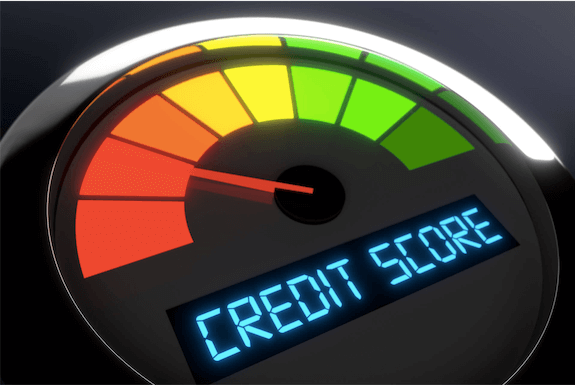Defaulting on a payday loan can have significant consequences that may create both financial and legal challenges for borrowers. Payday loans are short-term, high-interest loans designed to provide quick cash to individuals facing urgent financial needs. While they can be an easy and convenient solution in emergencies, borrowers must exercise caution and borrow responsibly.
Failure to repay a payday loan on time can lead to a cycle of debt and various repercussions, including increased debt balances, collection efforts, damaged credit and potential legal actions. With this in mind, Pheabs explores the implications and potential outcomes of defaulting on a payday loan to help borrowers understand the importance of responsible borrowing.
How Do Payday Loans Work?
Payday loans are typically unsecured loans with short repayment periods, often due on the borrower’s next payday. Offering access to cash fast, payday loans are commonly used to pay for emergency expenses such as medical bills, car repairs, house renovations, rent, utility payments or pet fees.
Lenders assess the borrower’s eligibility based on factors such as their age, income and employment status. Borrowers can apply for payday loans through physical storefront lenders or online platforms. They are available in 37 of the 50 US states where they are legal, including Alabama, California, Colorado, Florida, Kentucky, Louisiana, Mississippi and Tennessee to name a few.
What Is Defaulting On A Loan?
When a payday loan is approved, the borrower receives the funds and a repayment agreement is established in a legally binding contract with the lender. This outlines the due date, loan amount, interest rates and any applicable fees. If the borrower fails to repay the loan on or before the due date, it is considered a default.
A loan default can happen for various reasons, such as financial difficulties, unexpected expenses or mismanagement of finances. It is essential for borrowers to be aware of the consequences of defaulting on a loan, as it can have significant financial and legal implications.
What Are The Consequences Of Defaulting On A Payday Loan?
Defaulting on a payday loan can lead to a series of negative consequences. Examples include:
Increased debt balance
When a borrower defaults on their payday loan, lenders may impose additional fees, late penalties and higher interest rates. This can cause the outstanding debt balance to grow rapidly.
Debt collection efforts
Lenders may initiate collection efforts to recover the outstanding debt. Collection calls, emails and letters can be stressful for borrowers and may continue until the debt is fully repaid.
Negative impact on credit score
Lenders may report the default to credit bureaus, which can result in negative entries on the borrower’s credit report. Defaulting on a payday loan can significantly lower your credit score, making it harder to borrow money in the future.
Legal actions
Some lenders may pursue legal actions against borrowers who default on payday loans. Legal actions may include obtaining a court judgment, wage garnishment, or placing liens on the borrower’s assets. You could also receive a notice from the lender threatening to have you arrested.
Loan rollovers and renewals
In some cases, lenders may offer loan rollovers or renewals, allowing borrowers to extend the loan term in exchange for additional fees. While this may seem like a temporary solution, it can lead to a cycle of debt as the borrower accumulates more fees and interest.
Continuous payment authority (CPA)
Some lenders may have access to the borrower’s bank account through a CPA, enabling them to attempt automatic withdrawals for repayment. This can lead to overdraft fees and additional financial stress if there are insufficient funds in the account.
How To Manage Defaulting On A Loan
If a borrower defaults on a payday loan, it is essential to take proactive steps to address the situation and manage the debt responsibly. This includes:
Communicating with the lender
If a borrower anticipates difficulty in repaying the loan, it is crucial to communicate with the lender as soon as possible. Some lenders may be willing to work with responsible borrowers to establish a repayment plan or offer alternatives to avoid default.
Explore debt relief options
For borrowers facing financial hardship, debt relief options may be available, such as the best debt consolidation loans or seeking assistance from non-profit credit counseling agencies. These resources can provide guidance and support in managing debts.
Revise budget and financial planning
Reassessing the budget and financial planning can help identify areas where spending can be reduced to allocate more funds toward loan repayment.
Avoiding payday loan rollovers
To prevent falling into a cycle of debt, borrowers should avoid payday loan rollovers and renewals. Instead, explore alternative options for debt management and repayment.
Negotiate with the lender
In some cases, borrowers may be able to negotiate with the lender for more favorable terms, such as reduced fees or extended repayment periods. They may be able to offer a more flexible alternative plan to help borrowers pay back the loan.
Seek professional advice
If the debt becomes overwhelming, consider seeking expert advice from a financial advisor or consumer protection agency. These experienced professionals can provide guidance on managing debt and dealing with creditor collections.
Concluding Thoughts
Defaulting on a payday loan can lead to a range of serious consequences, from increased debt and collection efforts to potential legal actions and damaged credit. Responsible borrowing and timely repayment are essential to avoid falling into a cycle of debt with payday loans.
Borrowers should understand the terms of the loan, communicate with lenders in case of financial difficulty and explore alternative options for debt management. It is crucial to remember that payday loans are designed for short-term emergencies and should be used judiciously. By understanding the potential risks and taking proactive steps to address financial challenges, borrowers can manage their debts responsibly and make informed financial decisions for a more stable future.






